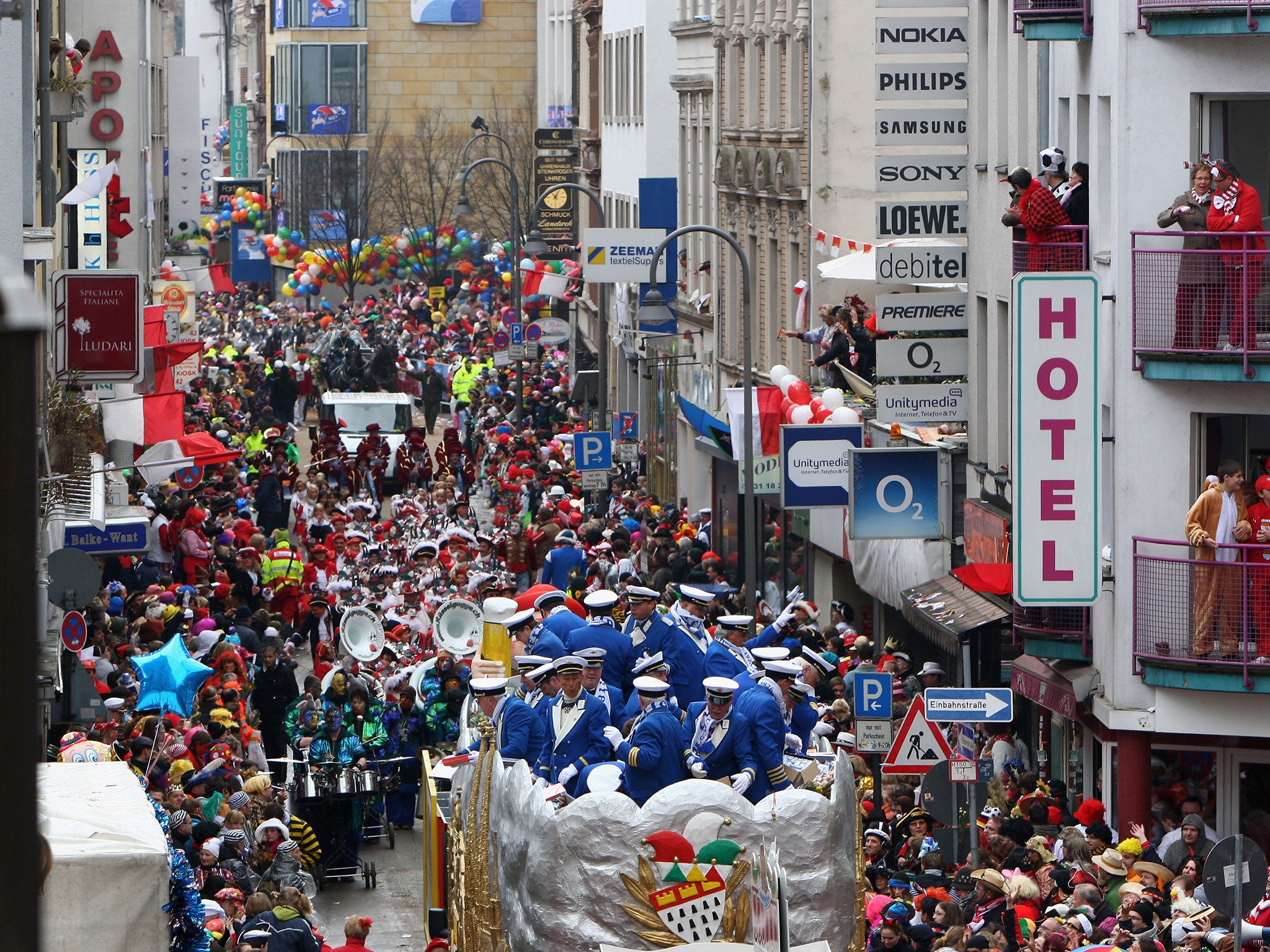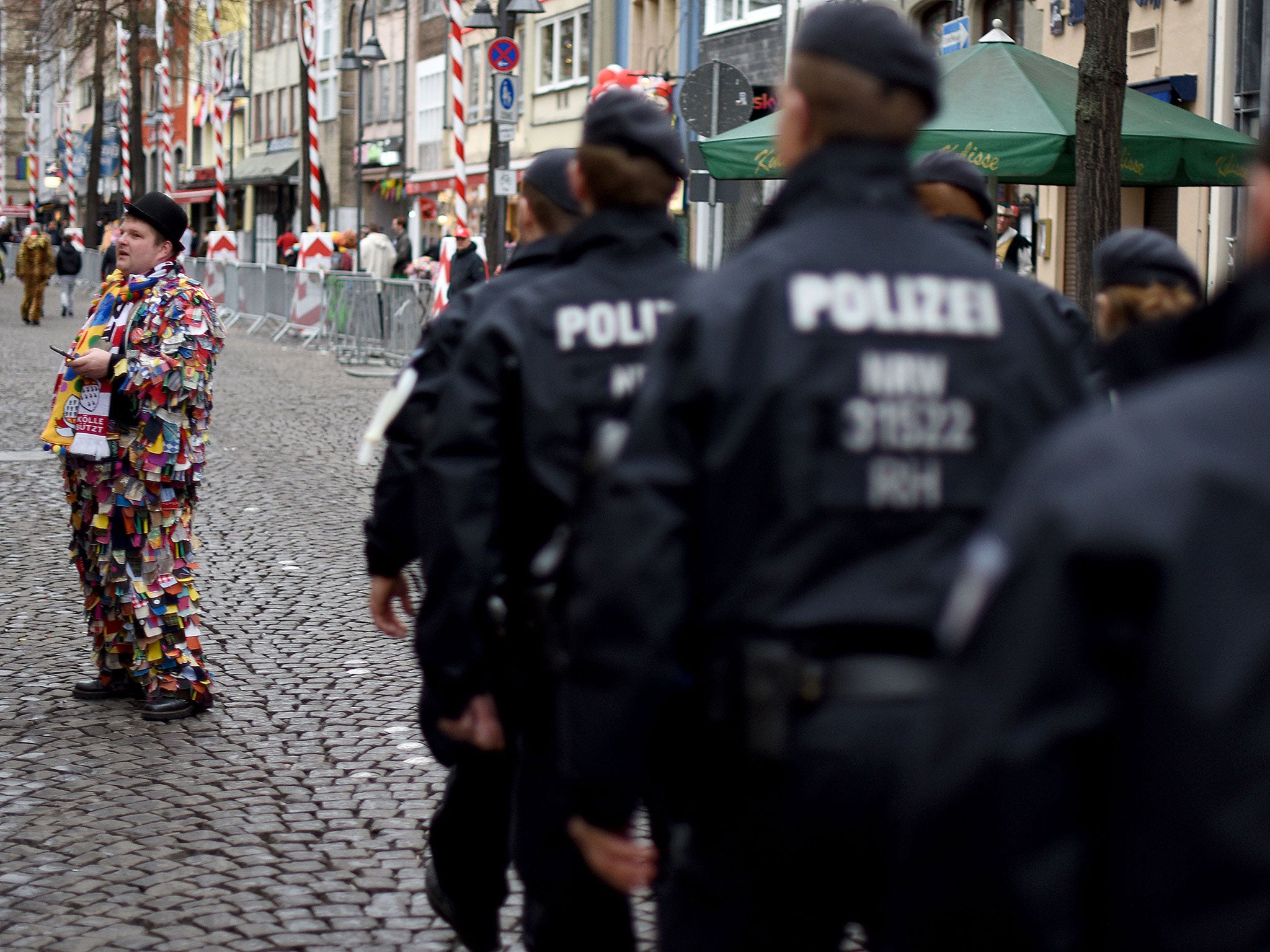German police spark outrage for telling authorities to keep refugees away from carnival celebrations
Internal email said groups of asylum seekers could trigger 'undesirable interactions'

Your support helps us to tell the story
From reproductive rights to climate change to Big Tech, The Independent is on the ground when the story is developing. Whether it's investigating the financials of Elon Musk's pro-Trump PAC or producing our latest documentary, 'The A Word', which shines a light on the American women fighting for reproductive rights, we know how important it is to parse out the facts from the messaging.
At such a critical moment in US history, we need reporters on the ground. Your donation allows us to keep sending journalists to speak to both sides of the story.
The Independent is trusted by Americans across the entire political spectrum. And unlike many other quality news outlets, we choose not to lock Americans out of our reporting and analysis with paywalls. We believe quality journalism should be available to everyone, paid for by those who can afford it.
Your support makes all the difference.German police have provoked outrage by advising local authorities not to organise refugee trips to carnival celebrations because of the risk of “undesirable interactions” with locals.
Officers from the headquarters of North Rheine-Westphalia state police (LZPD) said that officers took a “critical view” of the prospect of “mass appearances of refugees and asylum seekers” at the traditional festival.
"We are aware that last year, carers of refugees and asylum seekers organised visits to carnival events,” said the memo, which was obtained by the Kölner Stadt-Anzeiger.
“In light of the ongoing security situation in Germany, due to the events of the past couple of years, it could lead to undesirable interactions with the population and we advise against it."

The “Information for Carnival 2017” email advised anyone attending to expect “strong” security provisions and a heavy police presence, and ordered them not to carry “large bags, rucksacks or dangerous objects”.
It added that refugees should accept searches and other security measures targeting them “without criticism”.
German “Karneval” or “Fasching” celebrations officially start in November but peak around Rose Monday, the day before Shrove Tuesday, falling this year on 27 February.
Thousands of people will be joining celebrations across North Rheine-Westphalia, centring on its cities of Cologne, Düsseldorf and Mainz, where there will be parades and traditional performances, music and dance.
Petra Jennen, who runs a refugee centre in Leverkusen, told the Kölner Stadt-Anzeiger she was “embarrassed” by the letter.
“I will not tell our families that they should not go to the parade,” she added. “Even in an internal email, the district government and state police cannot communicate in this way.”
The North Rheine-Westphalia interior ministry and LZPD disassociated themselves from the letter, saying it was “unauthorised”.
Some local politicians were incensed by the leaked email. Marion Heuser, from the German Green Party, said the measures were tantamount to racial profiling.
“Many people have committed themselves to bringing the people left stranded here closer to German culture, which can sometimes be incomprehensible,” she wrote on Facebook. “Now refugees should be kept away?”
Rainer Pannenbäcker, director of the LZPD, confirmed that the message was sent out on 30 January.
“The wording in this letter is divisive and offensive. I regret that very much,” he said. “NRW police protect all people who celebrate carnival peacefully, no matter where they come from or what colour their skin is.”
Authorities said similar information would be distributed in a more “suitable form” in future.
Authorities in North Rheine-Westphalia came under fire last month after using the pejorative term “Nafri” in a tweet referring to North African immigrants, who they claimed were being vetted during New Year’s Eve celebrations in Cologne.
The controversy came a year after mass sexual assaults outside the city’s main railway station, where police initially sought to play down attacks largely attributed to migrants.
The assaults and a series of Isis-inspired terror attacks in Germany have fuelled growing anti-immigrant sentiment since Angela Merkel opened the borders to Syrian refugees in 2015.
She is facing a tough battle to be elected as Chancellor for a fourth term amid rising support for the far-right populist Alternative for Germany, while the anti-Islam Pegida group has drawn thousands of people at its marches.
Join our commenting forum
Join thought-provoking conversations, follow other Independent readers and see their replies
Comments